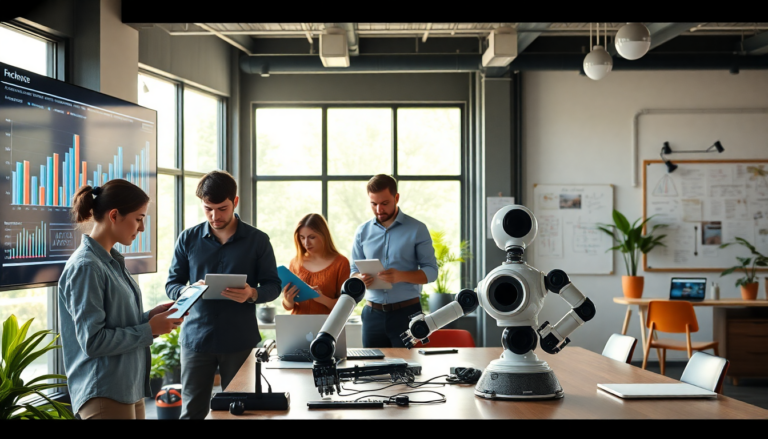Argomenti trattati
The Positive Impact of Artificial Intelligence
While the rapid advancement of artificial intelligence (AI) raises concerns for some, its potential to shape a better future is evident across multiple industries. AI is not just a technological marvel; it is a tool that enhances productivity, personalizes experiences, and solves complex problems. From automating tedious tasks to providing personalized education, AI is proving to be a game-changer.
AI in Everyday Life
AI technologies are reshaping our daily lives in ways we often overlook. For instance, large language models and generative AI have led to the development of powerful tools that assist in various tasks, from coding to route optimization. Companies like Google leverage AI in services like Google Maps, where algorithms analyze real-time data to suggest the most efficient routes for users, whether they are commuting by foot, bicycle, or vehicle.
Key Examples of AI Applications
- Google Maps: AI algorithms scan road information and recommend optimal travel routes.
- OpenAI: ChatGPT, a collaborative AI tool, helps users tackle complex questions and improve productivity.
- NVIDIA: Provides AI solutions for speech, translation, and content generation across various platforms.
AI in Healthcare
The healthcare sector is witnessing a significant transformation thanks to AI technologies. Virtual assistants powered by AI reduce unnecessary hospital visits and free up valuable time for healthcare professionals. Companies like Greenlight Guru are utilizing AI to help medical technology firms navigate the complexities of product development while ensuring compliance and efficiency.
Innovations in Drug Discovery
Pharmaceutical companies are also harnessing AI to expedite the research and development of life-saving medications. For instance, Takeda Pharmaceuticals is integrating AI into its drug discovery processes, significantly reducing the time and cost traditionally associated with bringing new treatments to market.
AI-Powered Diagnostic Tools
- PathAI: Improves diagnostic accuracy by assisting pathologists with advanced machine learning algorithms.
- Well: Offers personalized health plans by analyzing user data to provide tailored recommendations.
AI in Finance
The financial industry is evolving rapidly, driven by the implementation of AI technologies. Companies are utilizing AI for real-time data analysis and fraud detection, ensuring greater accuracy and efficiency in their operations. Kensho, a subsidiary of S&P Global, employs natural language processing to enhance research and analysis capabilities.
Automation in Insurance
Gradient AI is at the forefront of transforming the insurance sector by automating claims and underwriting processes. Their AI-driven solutions streamline routine tasks, enabling professionals to focus on more complex issues that require human expertise.
Examples of AI in Finance
- Morningstar: Utilizes AI to simplify investment research with its AI-powered digital assistant.
- Canoe: Automates alternative investments, facilitating data collection and analysis for clients.
AI in Transportation
In the realm of transportation, AI is paving the way for innovations like autonomous vehicles. Companies such as Cruise and Waymo are leveraging AI to develop self-driving technology that collects and analyzes vast amounts of data to enhance safety and efficiency on the roads.
Enhancing Fleet Management
Motive’s fleet management software employs AI to provide real-time tracking and improve operational safety. Their smart platform alerts users to dangerous driving behaviors, contributing to a significant reduction in accidents.
Key Innovations in Transportation
- General Motors: Implements AI across various applications, including motorsports, to optimize race strategies.
- Metropolis: Offers automated payment solutions for parking facilities using AI-driven computer vision technology.
AI in Retail and E-Commerce
Retailers are increasingly turning to AI to enhance customer experiences and streamline operations. Companies like Riskified utilize AI to mitigate fraud, while Mixbook offers generative AI tools to assist customers in creating personalized products.
Personalizing the Shopping Experience
Lily AI improves product discovery by using image recognition to tag products with customer-centric language, making it easier for shoppers to find what they need. Meanwhile, Instacart employs AI to optimize both online and in-person shopping experiences.
Examples of AI in Retail
- McDonald’s: Leverages AI to enhance drive-thru operations and optimize digital menu displays.
- Whole Foods: Uses Amazon’s Just Walk Out technology, allowing customers to shop without traditional checkout processes.

